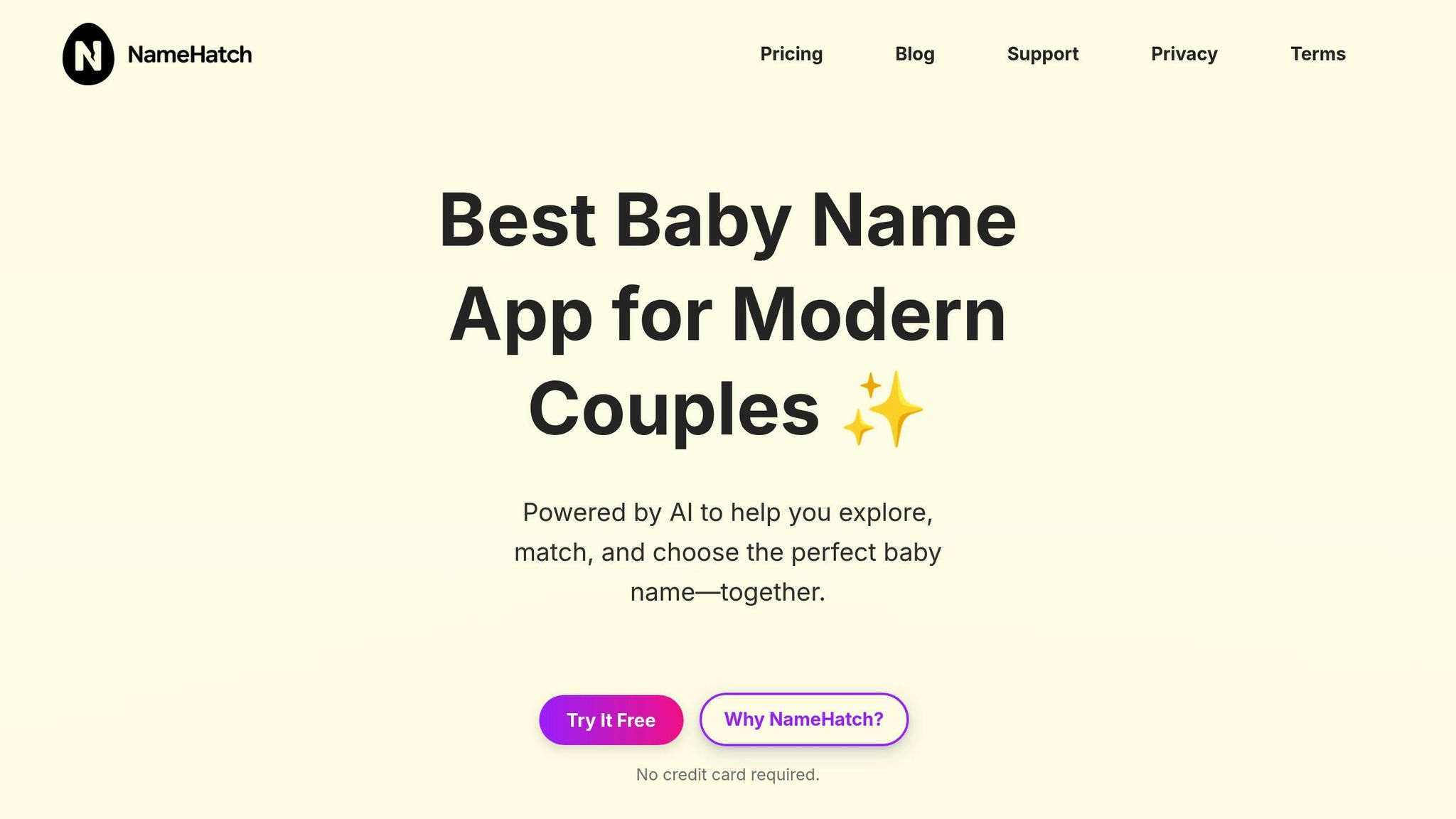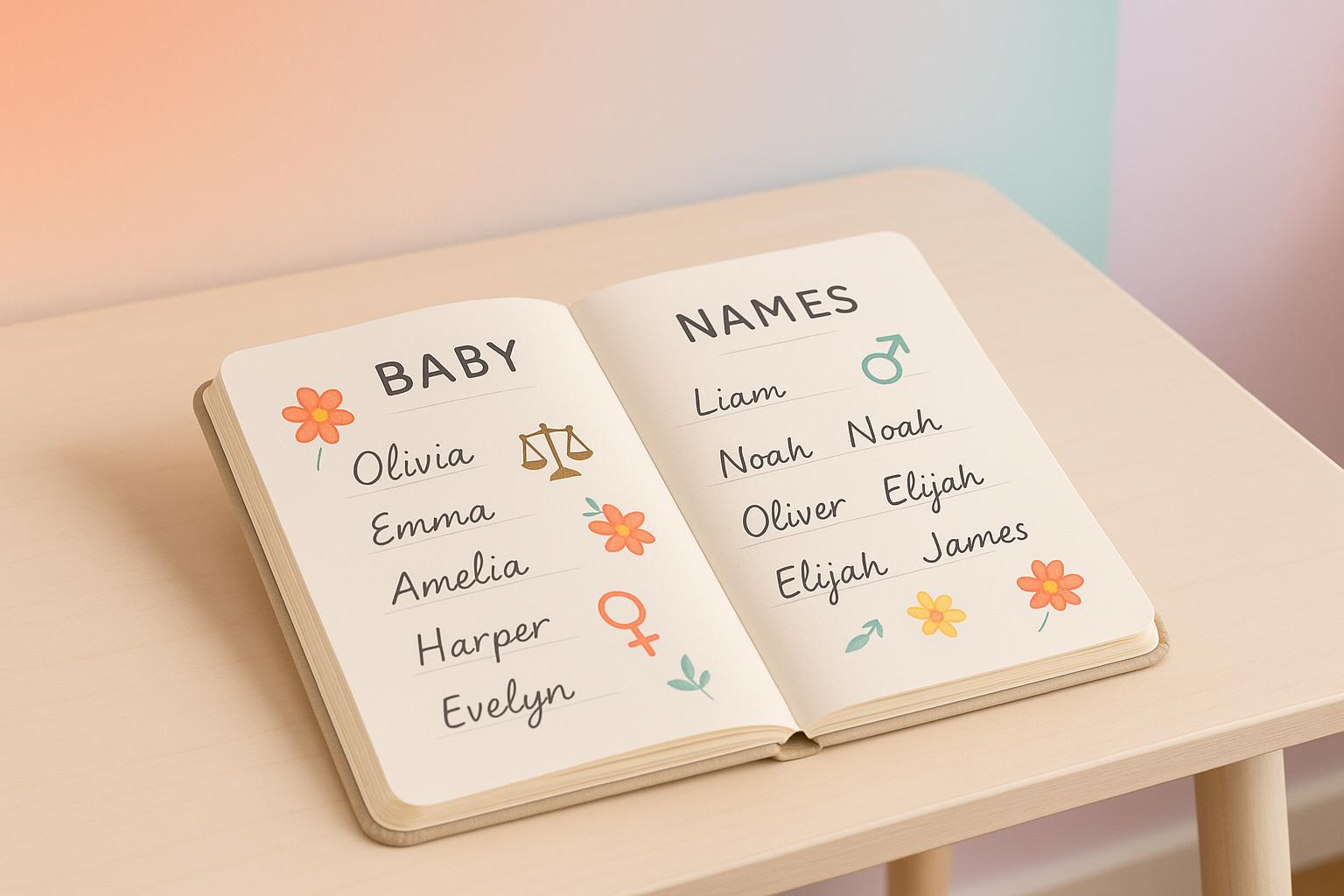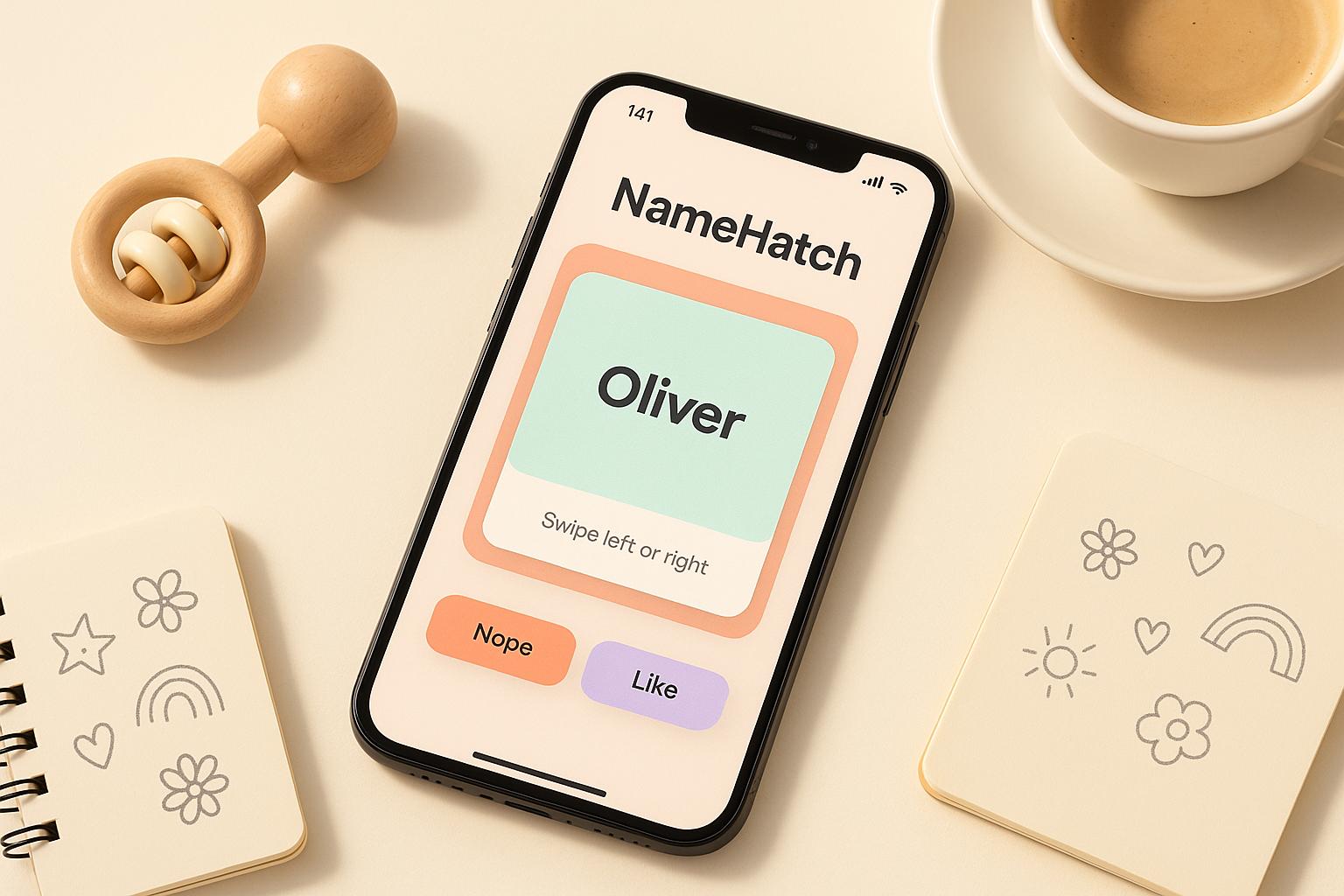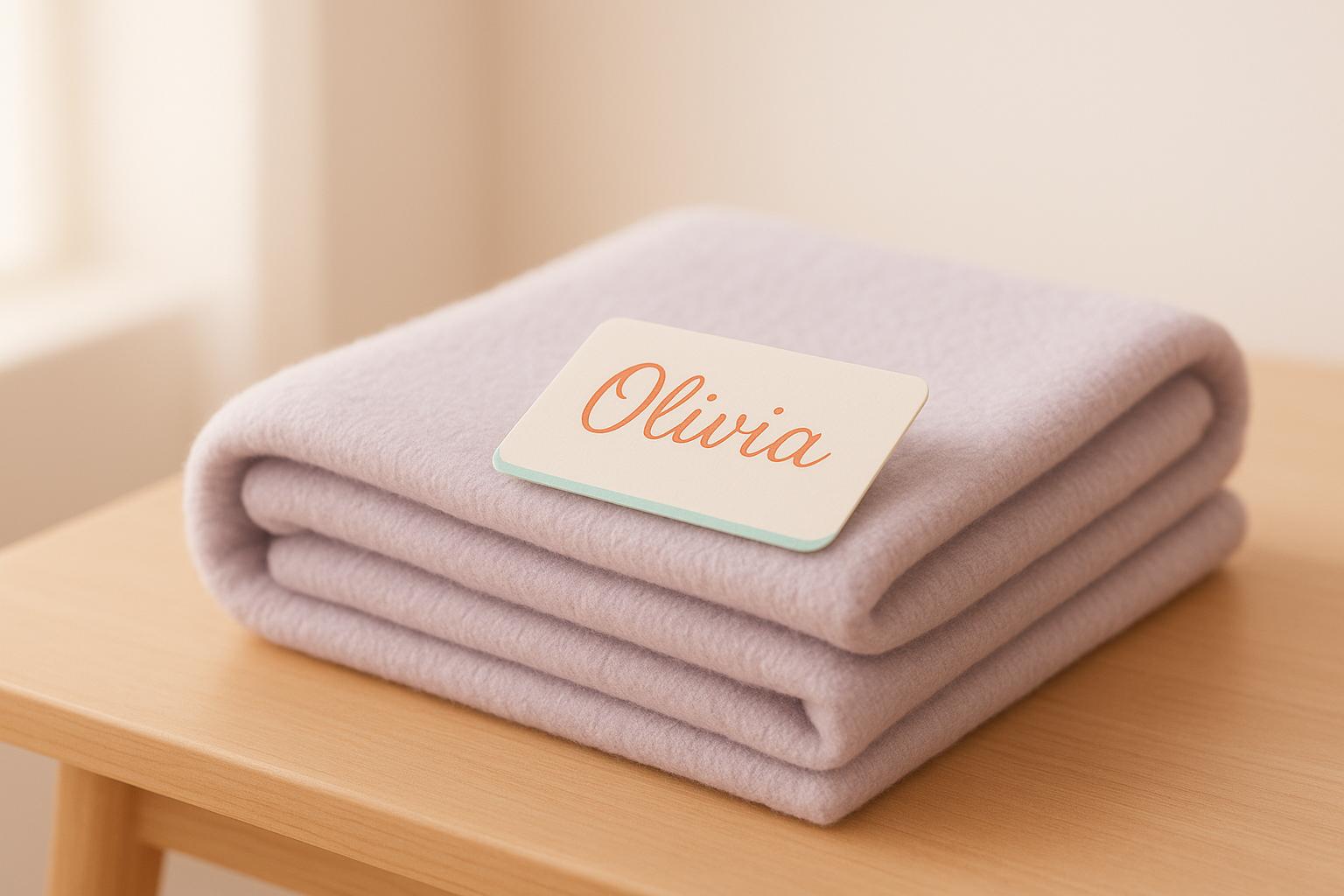Naming your child is a big decision, and the choice often boils down to two options: traditional names that carry history and familiarity or modern names that reflect trends and individuality. Each has its pros and cons, and the decision depends on your priorities as a parent.
Key Takeaways:
- Traditional names (e.g., William, Elizabeth): Timeless, easy to spell/pronounce, and often honor family heritage but may feel too common.
- Modern names (e.g., Luna, Kai): Unique, trend-driven, and expressive but may face spelling/pronunciation issues or become outdated.
Quick Comparison:
| Factor | Traditional Names | Modern Names |
|---|---|---|
| Focus | Stability and heritage | Individuality and trends |
| Inspiration | Biblical, royal, family roots | Pop culture, nature, new blends |
| Popularity | Steady over time | Trend spikes, then declines |
| Challenges | May feel too common | Spelling/pronunciation issues |
Whether you lean toward honoring the past or embracing current influences, the right name is one that resonates with you and your family.
BABY NAME LIST | Vintage & Timeless Baby Nams I Love! 🌼 Unique Boy & Girl Picks
What Are Old and New Baby Names
Understanding the difference between traditional and modern baby names can help you choose one that resonates with your values and preferences. Each type reflects distinct eras, shaped by history, trends, and cultural shifts.
What Makes a Baby Name Old
Traditional baby names are deeply tied to history and family heritage, often passed down through generations. In the late 19th and early 20th centuries, names rooted in biblical and royal traditions were especially popular, reflecting the customs of the time.
Classic names often come from three main sources: biblical references, royal lineages, and family traditions. For example, biblical names like David, Sarah, and Matthew have stood the test of time, with religious names making up nearly half of all boys' names by the mid-1500s. Similarly, royal names such as William, Catherine, and Charles carry a sense of dignity and tradition. Family names, handed down through generations, create a personal connection to one's ancestry.
Interestingly, many of these traditional names are making a comeback. Names like Edith, Henry, Mabel, and Arthur bring a nostalgic charm that appeals to modern parents. One of the advantages of these names is their established spellings and pronunciations, which make them familiar and easy to recognize while preserving a link to the past.
On the other hand, modern names take an entirely different approach, reflecting the dynamic and creative influences of today's world.
What Makes a Baby Name New
Modern baby names are all about originality and capturing the essence of the present. They often break away from tradition, embracing creativity and reflecting current trends.
"Part of the point of Fast Fashion names is varying the spelling, marrying elements from different names, and creating something totally unique that also perfectly captures the current name climate." - Sophie Kihm, Nameberry
Several factors influence the rise of modern names. Pop culture is a major driver - take 1978, for example, when the release of the first Star Wars movie caused a 50% spike in babies named Luke compared to the previous year. Similarly, TV shows like Game of Thrones made names like Arya popular, while Downton Abbey brought attention to elegant names like Cora.
Technology and social media also play a role, inspiring parents to blend styles and create unique names like Adael, Aella, and Emryn. Many families are now choosing names with global appeal, such as Xochitl, Ewan, Noemi, and Luca, reflecting a more interconnected world.
Modern names often include creative spellings or nickname-style choices, such as Albie, Dolly, and Sonny, which give off a casual, playful vibe. This shift toward individuality is striking: in 1900, 91% of children were given names from the top 1,000 most popular options. By 2000, that number dropped to 75% for girls and 86% for boys. Today, fewer than 8% of newborns receive names from the top 10 most popular lists.
Modern baby names reflect the changing times, offering endless possibilities for parents to express their creativity and embrace new influences.
Main Differences Between Old and New Baby Names
The divide between traditional and modern baby names has grown, with each style reflecting distinct values. Traditional names often highlight heritage and stability, while modern names lean toward individuality and self-expression.
The trend toward uniqueness is undeniable. Today, fewer than 8% of newborn boys and girls are given names from the top 10 most popular lists. This shift marks a departure from conformity to a more creative and personalized approach to naming.
"The Baby Boomers were the first parents who wanted to be cool, and who wanted their children to be cool as well." - Pamela Redmond
Baby Boomers significantly influenced this shift, increasing the variety of unique names. For boys, the number of novel names per thousand people quadrupled, while for girls, it grew by 2.75 times. The table below offers a clear comparison of traditional and modern naming trends.
Side-by-Side Comparison
Here's how traditional and modern names differ across key factors:
| Factor | Traditional Names | Modern Names |
|---|---|---|
| Focus | Fitting in and honoring heritage | Standing out and expressing individuality |
| Source of Inspiration | Biblical texts, royal lineages, family trees | Pop culture, celebrities, nature, and new creations |
| Spelling Approach | Established, consistent spellings | Creative variations and unique spellings |
| Popularity Pattern | Steady, long-lasting appeal | Trendy spikes with rapid declines |
| Cultural Significance | Deep historical and religious roots | Reflects current cultural trends |
| Meaning Priority | Emphasizes traditional virtues and history | Prioritizes sound and style over meaning |
| Gender Association | Clearly masculine or feminine | Increasingly gender-neutral |
Recent data highlights the growing preference for distinctive names. Between 2004 and 2006, 34% of boys and 24% of girls received one of the 50 most common names. By 2011–2015, those numbers dropped to 28% for boys and 21% for girls. This trend underscores a deliberate effort by parents to choose names that help their children stand out.
Traditional names like Grace, Hope, and Faith often carry moral or historical significance. In contrast, modern names frequently draw from nature, pop culture, or entirely new combinations, often without deep symbolic meaning. For example, modern girl names often feature invented endings like "lee", while modern boy names borrow from surnames, particularly those ending in "S".
The approach to gender in naming has also evolved. Many modern baby names are now gender-neutral, reflecting shifting societal values and a move away from rigid gender norms.
"Parents come to us for help in finding a name that's tailored perfectly to them, more than one that's different from anyone else." - Pamela Redmond
This sentiment captures the essence of modern naming. Parents today seek names that feel personally meaningful, striking a balance between honoring tradition and giving their child a unique identity.
Pros and Cons of Old and New Baby Names
When choosing a baby name, parents often weigh the benefits and challenges of traditional versus modern naming styles. As naming trends have shifted, both old and new names offer their own appeal - and their own set of challenges.
In the U.S., naming preferences have evolved significantly over time. Back in 1950, only 5% of parents chose a name outside the top 1,000 most popular names. By 2012, that number had grown to 27%. This shift reflects a growing desire among parents to balance tradition with individuality.
The Ups and Downs of Traditional Names
Traditional names carry a sense of history and familiarity. Names like Elizabeth, Michael, or Sarah are easy to pronounce and spell, making everyday life just a little simpler. These names also tend to age gracefully - Catherine or James, for example, are unlikely to feel out of place at any stage of life.
However, the popularity of traditional names can sometimes be a drawback. A child named Emma or William might find it harder to stand out in a crowd, whether in a classroom or on social media. Sharing a name with multiple peers can dilute a sense of individuality, requiring extra effort to be noticed. For example, before 1800, just four first names accounted for half of all English men, while in 2012, the top four boys' names (Harry, Oliver, Jack, Charlie) were used for only 7% of baby boys.
| Pros of Traditional Names | Cons of Traditional Names |
|---|---|
| Easy to pronounce and spell | May feel too common or unoriginal |
| Familiar and comforting | High popularity can lead to name-sharing |
| Timeless and age well | Might not reflect personal or cultural uniqueness |
| Provide a sense of stability | Children may need to work harder to stand out |
The Ups and Downs of Modern Names
Modern names, on the other hand, focus on uniqueness and self-expression. They allow parents to be creative, often reflecting personal values or beliefs. In today’s digital world, a distinctive name can even help secure unique usernames or social media handles, contributing to a standout online identity .
But modern names can come with challenges. Uncommon spellings or pronunciations might lead to misunderstandings or even teasing. In professional settings, some modern names may face bias. They can also complicate everyday tasks, like finding personalized items or filling out official documents. And while a trendy name might feel fresh now, it runs the risk of becoming dated over time.
| Pros of Modern Names | Cons of Modern Names |
|---|---|
| Highlight individuality and creativity | Pronunciation and spelling may cause issues |
| Reflect parents' personal beliefs | Could be subject to teasing or bias |
| Stand out in the digital world | May not age well as trends change |
| Feel fresh and contemporary | Legal or official complications with unique spellings |
The decision between a traditional or modern name ultimately depends on what matters most to your family. Whether you prioritize originality or prefer the comfort of a well-loved classic, it’s worth considering how a name will shape your child’s experiences in both personal and professional settings.
sbb-itb-f13f980
Baby Name Trends for 2025
The baby name trends of 2025 reflect a mix of nostalgia, cultural influences, and contemporary values. Parents are exploring a wide range of inspirations, blending personal meaning with modern appeal to find names that resonate deeply.
"Baby names say a lot about the times we're living in - and the latest trends reflect a fascinating mix of tradition, creativity, meaning, and individuality." - Happiest Baby Staff
In a world still processing years of uncertainty, many families are turning to names that evoke comfort, heritage, and stability. At the same time, individuality and creativity remain key factors in shaping naming choices.
Vintage and Nature-Inspired Names Make a Comeback
Old-fashioned names are enjoying a revival, with parents rediscovering their timeless charm. Take Eloise, for example: once ranked #300 a decade ago, it now sits at #106. These vintage names offer a sense of history and connection to past generations, making them feel both meaningful and enduring.
Names from the early 1900s, like Arthur and Louie, continue to hold strong appeal. Their classic quality ensures they remain relevant across decades, providing a sense of familiarity and elegance.
Nature-inspired names are also gaining traction, particularly for their serene and grounding qualities. Gender-neutral options like Rowan and Sage are especially popular, reflecting a desire for peace and natural beauty in an ever-changing world. These names resonate with parents seeking simplicity and balance during challenging times.
While these classic trends endure, modern influences are also reshaping how parents choose names.
The Rise of Gender-Neutral and Pop Culture-Inspired Names
As societal attitudes evolve, gender-neutral names are becoming increasingly popular. This shift aligns with a broader embrace of inclusivity and allows families to move beyond traditional gender norms. Names like Avery, Riley, and Jordan are just a few examples of this growing trend.
Pop culture continues to be a major force in baby naming. For instance, the Netflix series Bridgerton propelled the name Daphne up 36 spots to #288, while Sabrina climbed 109 spots to #342, and Billie rose 37 spots to #842. Celebrity connections also play a role - Taylor Swift's relationship with Travis Kelce sparked a surge in names like Wyatt, Elliotte, and Bennett, each rising by over 60% in May 2025. The release of the Fourth Wing book series caused an even more dramatic spike, with the name Xaden increasing by over 500%.
Social media influencers are another source of inspiration. Instagram personalities Katy Cardona and Deiby Ruiz influenced more than 150 parents to name their sons Lahiam. Sports stars are leaving their mark too - thanks to A'ja Wilson of the Las Vegas Aces, the name A'ja skyrocketed more than 7,000 spots for girls. Even international events like the Paris Olympics have an impact; the name Raphael, a top choice in France in 2023, climbed 121 spots in the U.S. to reach #328.
Musicians also shape trends. Kendrick rose 32 spots to #402, while Drake saw a drop of 103 spots to #807. These shifts show how pop culture and current events continually influence naming decisions.
With so many unique influences shaping baby names, 2025 offers parents an exciting opportunity to find names that honor tradition while embracing modern individuality. Whether inspired by history, nature, or pop culture, today’s naming choices reflect the values and creativity of the times.
Using NameHatch to Find the Right Baby Name

Finding the perfect baby name can feel like a delicate balance between honoring tradition and embracing modern trends. NameHatch simplifies this often overwhelming process, turning it into an enjoyable journey for couples. With the right tools to explore options together, choosing between timeless classics and contemporary favorites becomes much more manageable. NameHatch helps couples discover names they genuinely love while ensuring both partners feel involved every step of the way.
Instead of flipping through endless baby name books or scrolling through countless online lists, NameHatch offers a more organized and interactive approach. It’s designed to make the experience efficient, collaborative, and even fun. Let’s dive into how NameHatch transforms the naming process into something memorable.
How NameHatch Makes Naming Easier
NameHatch uses a swiping system inspired by popular dating apps, making the process of browsing baby names feel familiar and engaging. Whether you’re lounging on the couch or taking a quick break, you can swipe through names and instantly see which ones you and your partner both "match" on. This creates a shared list of favorites without any extra effort.
The platform also includes a smart filtering system to help you explore names by style. Want something timeless? Use the Classic filter to find enduring names like Charlotte or William. Prefer something fresh and modern? Switch to Modern filters to uncover names like Zara or Kai. This flexibility allows you to zero in on the names that resonate with your current preferences.
Another standout feature is the instant matching alerts, which notify both partners whenever a name is mutually liked. It’s a simple yet effective way to keep both people engaged and excited.
For those seeking more specific options, NameHatch offers premium filters. Whether you’re drawn to nature-inspired names or want to explore international options, these filters make it easy to refine your search and discover names that align with your unique tastes.
Custom Name Ideas with AI Technology
NameHatch takes personalization a step further with its AI-powered suggestion engine. By analyzing your swiping patterns and preferences, the platform tailors its recommendations to reflect both partners' tastes. This eliminates the guesswork and creates a harmonious blend of traditional and modern options, making it easier to find names you’ll both adore.
With NameHatch, the journey to finding the perfect name becomes less about compromise and more about connection.
Conclusion: Balancing Old and New in Baby Names
Choosing the right name for your baby is all about blending tradition with a touch of modernity to create something that truly reflects your family's story. Whether you’re drawn to timeless picks like Charlotte and William or lean toward contemporary options like Luna and Kai, the key is finding a name that resonates with your values, cultural ties, and personal preferences.
Before making your decision, take a moment to consider what matters most to you as parents. Are you hoping to honor family traditions or cultural heritage? Do you prefer names with historical depth, or are you looking for something fresh and distinctive? Practical considerations are important too - choosing a name that’s easy to pronounce, spell, and grows well with your child through all stages of life. After all, a name is a cornerstone of identity.
Some families strike the perfect balance by pairing a classic first name with a modern middle name, or vice versa. Others gravitate toward names like Amelia or Oliver, which naturally bridge the gap between old and new, offering a timeless yet current feel.
This is where NameHatch shines. With its intuitive filtering system and AI-driven suggestions, it simplifies the process of finding names that combine the best of both worlds. Whether you’re exploring traditional or modern options, NameHatch helps you and your partner collaborate to uncover names that feel meaningful and exciting for your family. It’s a tool designed to make the journey of naming your child thoughtful and stress-free.
At the end of the day, the most important thing is to choose a name you love - one that feels like the perfect fit for your child and your family. Let NameHatch help you discover that ideal name, one that will carry meaning for years to come.
FAQs
How can I choose a baby name that honors family traditions while still feeling unique?
Finding the sweet spot between honoring family traditions and picking a name that feels fresh can be a rewarding challenge. One way to strike this balance is by weaving traditional elements - like a family name, surname, or initials - into a name with a modern flair. For instance, you could take a classic name and update its spelling or pair it with a more distinctive middle name to make it feel contemporary.
Another approach is to put a personal spin on family naming patterns. Maybe your family has a tradition of names starting with a specific letter, or there's a cherished middle name that's been passed down. You can use these patterns as inspiration while tailoring the name to reflect your own style. This way, you’re not just preserving family heritage - you’re adding your own touch to it. The perfect name will feel like a bridge between the past and the future, honoring your roots while standing out in its own right.
How can I pick a modern baby name that will stay timeless?
To pick a modern baby name that remains timeless, look for ones with a classic or historical background. These names often carry an enduring charm. A good tip is the '100-year rule' - names that were popular about a century ago often resurface, balancing tradition with a contemporary feel.
Steer clear of names tied to fleeting trends or fads, as they can quickly feel outdated. Instead, choose names that are adaptable and rich in meaning, ensuring they grow well with time and stay relevant for generations.
How do culture and pop culture shape the popularity of baby names today?
How Pop Culture Shapes Baby Name Trends
The world of pop culture has a big influence on the names parents choose for their babies. When celebrities, hit TV shows, or blockbuster movies introduce a memorable name, it often sparks a trend. For instance, a character from a popular series or a name tied to a famous figure's child can quickly become the talk of the town, reflecting the cultural vibe of the moment.
Social media and influencers take this to another level. They spotlight these names, making them more visible and appealing. Whether it’s a distinct name from a trending series or a chic choice by a celebrity, pop culture keeps driving modern baby-naming decisions in exciting and unexpected ways.



